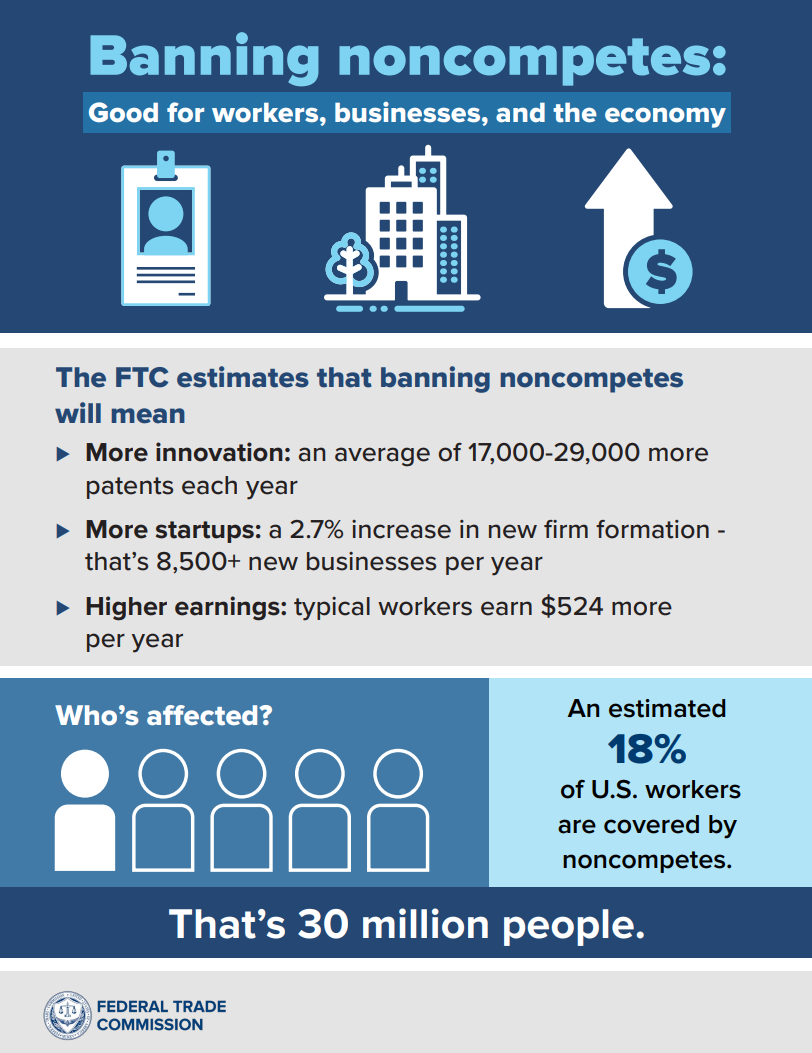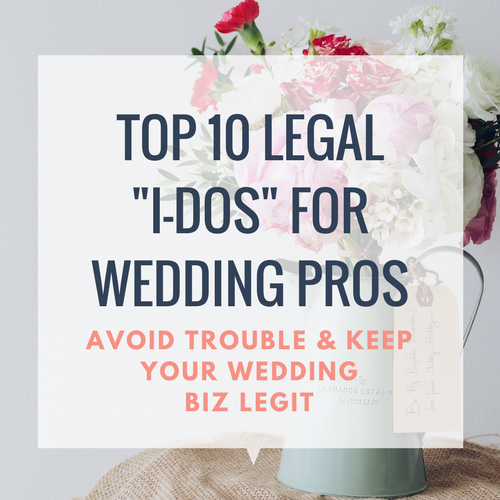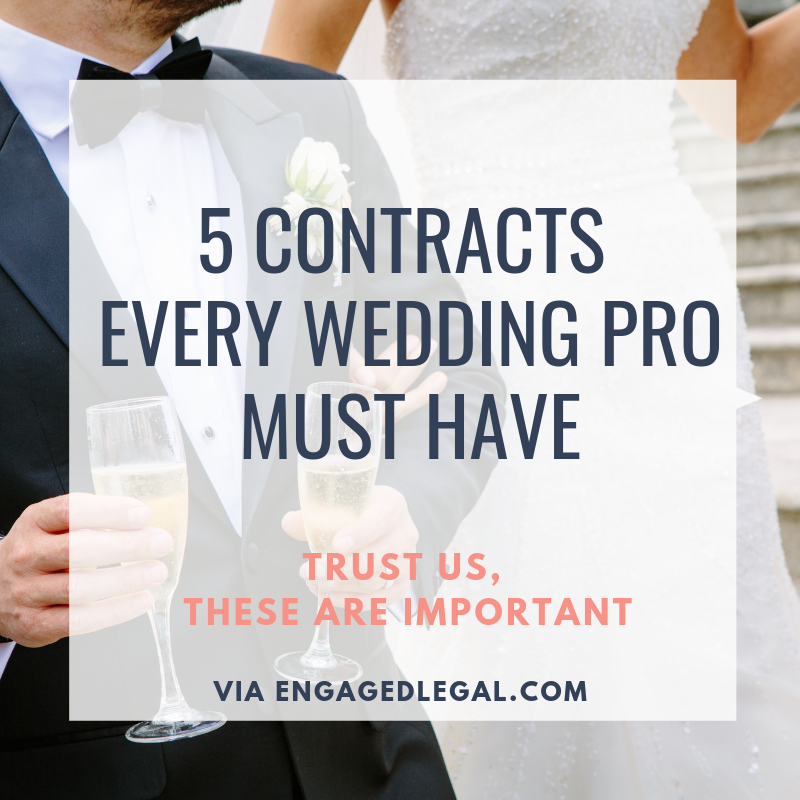The 2024 FTC Noncompete Ban: What Wedding Pros Need to Know
/On April 23, 2024, the Federal Trade Commission (FTC) rolled out the final rule on its game-changing update: a sweeping ban on noncompete clauses. If you're wondering what this means for your business, you're in the right place— I read it so you don’t have to. I’ve also included a link to download the FTC’s model language in a word document (below) and links to helpful resources. Let's dive in and unpack all of this together.
Understanding the Noncompete Ban
So, what exactly does this ban entail?
The FTC's noncompete ban prohibits the enforcement of existing noncompete clauses (with a few exceptions) and totally bans the inclusion of new ones in contracts. This change is aimed at empowering workers to explore new opportunities without being held back by restrictive agreements.
The FTC estimates that banning noncompetes will lead to new business formation growing by 2.7% per year, resulting in more than 8,500 additional new businesses created each year.
What is a Noncompete really?
I think it’s very important to clarify what a noncompete actually is— because there is a good deal of misunderstanding here.
A noncompete agreement, (also referred to as a noncompete clause or covenant not to compete) is a contractual arrangement between an employer and a worker. It restricts the employee's ability to engage in competitive activities— such as working for a competitor or starting a competing business— for a specified period of time and within a defined geographic area after the termination of employment or business relationship.
The purpose of a noncompete agreement is to protect the employer's business interests, including trade secrets, customer relationships, and confidential information, by preventing former employees (business partners) from using their knowledge or skills to compete against the employer.
Before this ban, noncompete agreements had to be reasonable in scope, duration, and geographic reach to be enforceable under the law, and were unfavored in many jurisdictions. It was TOUGH to enforce a noncompete agreement.
The important point here: noncompetes are related to post employment/ working relationships.
Employees will still retain a “duty of loyalty” to a company during their employment. That means they can’t take clients from the company and opportunities from the company for themselves. That does not change.
Who's Affected by the Noncompete Ban?
The ban applies to all employers and workers.
So yeah… everyone.
There is an exception for current noncompetes for senior executives that may be enforceable after the ban goes into effect. If a worker earns more than $151,164 AND is in a “policy-making role” within a company that worker’s noncompete may fall under this “senior executive” exemption. “Policy-making roles” are defined as “a business entity’s president, chief executive officer or the equivalent, any other officer of a business entity who has policy-making authority, or any other natural person who has policy-making authority for the business entity similar to an officer with policy-making authority.” No one else!
These specific existing senior executives - who represent less than 0.75% of workers - may remain enforceable under the FTC’s final rule, but employers are banned from entering into or attempting to enforce any new noncompetes, even if they involve senior executives.
For everyone else, it's time to bid farewell to those noncompete clauses.
Employer Responsibilities
As an employer, it's crucial to keep your team informed about these changes. You're required to notify workers that existing noncompete clauses won't be enforced. The FTC has even provided model language to make compliance a breeze. You can use this template to send out mass communications, ensuring that everyone is in the loop. (Note: It’s a word doc, but you can always open in a program like Google Docs as well).
Alternatives to Noncompetes
Now, you might be wondering: How can I protect my business interests without relying on noncompete agreements?
There are very effective alternatives!
Trade secret strategies and non-disclosure agreements (NDAs) are excellent options for safeguarding your intellectual property, and honestly what I typically recommend for folks at my dayjob. In fact, the federal government and many state governments have enacted legislation that protects trade secrets by law— so long as you’re safeguarding them appropriately.
And let’s be real— most wedding pros— and employers generally— don’t want to limit where people can work and take away their ability to earn a living. They just want to protect their client list, knowledge, vendor contacts, and other information that we can classify as “trade secrets.”
By setting up robust trade secret protection plans supported by nondisclosures and confidentiality agreements, you can safeguard this valuable business knowledge..
How Can Small Businesses Comply with the Noncompete Ban?
Glad you asked!
The FTC has provided some great resources. Here are links to a few:
FTC Fact Sheet (PDF)
Model Notice (Word)
In Summary…
The FTC’s final rule represents a significant shift in how labor competition and employee mobility are managed in the U.S. It also creates (warranted!) concern about the spread of proprietary business information. Several organizations have vowed to challenge the rule and the FTC’s power to pass such broad, sweeping changes. However, moving forward it is critical that businesses become laser-focused on their IP and trade secret protection strategies.




















